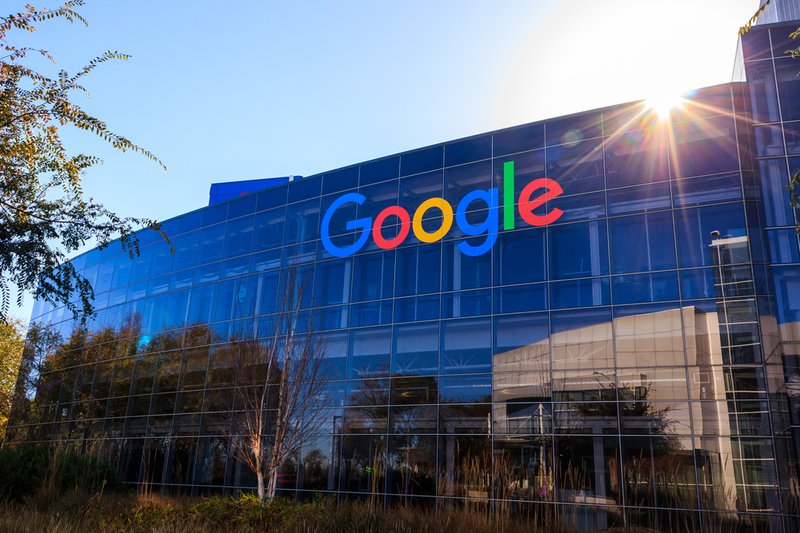The Growing Pressure To Break Up Google: Antitrust Concerns And The Future

Table of Contents
Google's Monopolistic Practices Across Key Markets
Google's dominance isn't confined to a single sector; it spans several key markets, raising serious antitrust concerns. This dominance raises questions about fair competition and consumer choice.
Search Engine Dominance: Google's overwhelming market share in search is undeniable. Globally, it commands over 90% of the market, leaving little room for competitors like Bing, DuckDuckGo, or smaller search engines. This dominance isn't accidental; it's a result of strategic moves:
- Pre-installation on Android devices: Google's default search engine status on billions of Android devices gives it an insurmountable advantage.
- Integration with other services: Google seamlessly integrates its search engine with other services like Maps, Gmail, and YouTube, creating a powerful ecosystem that locks users in.
This near-monopoly stifles innovation and limits consumer choice in the search engine market.
Android's Market Control: Google's control of the Android operating system further solidifies its dominance. Android powers the vast majority of smartphones globally. This control allows Google to:
- Promote its own services: Google pre-installs its apps and services on Android devices, giving them a significant advantage over competitors.
- Limit competitors: Google's policies and practices can make it difficult for competing app developers and services to thrive on the Android platform.
Android's market share, far exceeding that of iOS and other mobile operating systems, demonstrates Google's substantial control over the mobile landscape.
Advertising Monopoly: Google's AdSense and AdWords platforms dominate the online advertising market, controlling a significant portion of the global ad revenue. This dominance gives Google immense power over:
- Advertising prices: Google's control over ad inventory allows it to influence advertising prices, potentially harming smaller businesses.
- Competition: Smaller businesses struggle to compete against Google's ad dominance, limiting their reach and visibility.
Google's immense share of the online advertising market raises concerns about unfair competition and the potential for stifling innovation within the advertising sector.
Antitrust Concerns and Legal Challenges
Google has faced numerous antitrust lawsuits and investigations globally, highlighting the seriousness of the concerns surrounding its practices.
Past and Present Lawsuits: Over the years, Google has been subject to significant legal challenges:
- The European Union: The EU has levied substantial fines against Google for anti-competitive practices, including favoring its own shopping service in search results.
- The United States: The US Department of Justice and various states have launched investigations into Google's market power, focusing on areas like search, advertising, and Android.
These legal battles underscore the growing international concern regarding Google's monopolistic practices.
Arguments for and Against Breakup: The debate surrounding a Google breakup is complex, with compelling arguments on both sides:
- Arguments for breakup: Increased competition, lower prices for consumers, and greater innovation across various sectors.
- Arguments against breakup: Potential fragmentation of services, reduced investment in research and development, and potential negative impacts on innovation.
The potential consequences of breaking up Google are far-reaching and require careful consideration.
Potential Consequences of a Google Breakup
The potential impact of a Google breakup is multifaceted, affecting innovation, consumers, and the global economy.
Impact on Innovation: A breakup could have both positive and negative consequences for Google's innovation capacity:
- Potential benefits: Increased competition might spur innovation in specific sectors, leading to better products and services for consumers.
- Potential drawbacks: A breakup could lead to decreased investment in research and development, potentially slowing down innovation in the long term.
The impact on innovation is a key consideration in the debate.
Consumer Impact: A Google breakup could impact consumers in various ways:
- Potential benefits: More choices, potentially lower prices for certain services, and increased competition.
- Potential drawbacks: Potential service disruptions during the transition, and the possibility of less integrated services.
The consumer experience is a crucial factor to consider when evaluating a potential Google breakup.
Economic Implications: The economic repercussions of a Google breakup are substantial:
- Potential job losses: Restructuring could lead to job losses within Google and related industries.
- Increased competition: A breakup could lead to greater competition and potentially lower prices for consumers.
- Shifts in market power: The breakup would likely shift the balance of power in the tech industry, potentially creating new market leaders.
The broader economic impact must be carefully weighed before taking such a drastic step.
Conclusion
Google's dominance across various markets raises significant antitrust concerns, leading to considerable pressure to break the company up. The potential consequences are complex and multifaceted, with both positive and negative implications for consumers, innovation, and the broader economy. The debate surrounding "Break Up Google" is far from over. Stay informed about the evolving legal landscape and its potential impact on your digital experience. Continue to research the arguments for and against a breakup to form your own informed opinion. The future of the tech industry may well depend on the outcome of this critical debate.

Featured Posts
-
 Remembering Pope Francis A Champion Of Compassion And Social Justice
Apr 22, 2025
Remembering Pope Francis A Champion Of Compassion And Social Justice
Apr 22, 2025 -
 The Pan Nordic Army Combining Swedish Armor And Finnish Infantry
Apr 22, 2025
The Pan Nordic Army Combining Swedish Armor And Finnish Infantry
Apr 22, 2025 -
 T Mobiles 16 Million Data Breach Fine Three Years Of Security Failures
Apr 22, 2025
T Mobiles 16 Million Data Breach Fine Three Years Of Security Failures
Apr 22, 2025 -
 Office365 Hack Nets Millions For Crook Federal Investigation Reveals
Apr 22, 2025
Office365 Hack Nets Millions For Crook Federal Investigation Reveals
Apr 22, 2025 -
 Improving Security Cooperation Between China And Indonesia
Apr 22, 2025
Improving Security Cooperation Between China And Indonesia
Apr 22, 2025
